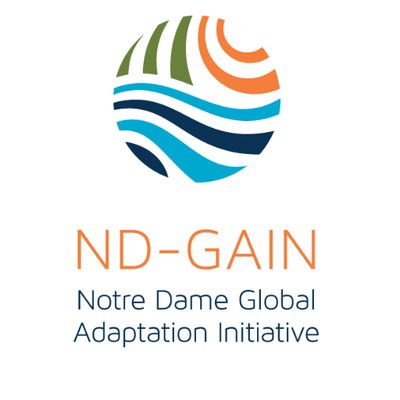Location
There’s a growing, global movement to make human communities and ecosystems more resilient to climate extreme impacts. For the Notre Dame Global Adaptation Initiative (ND-GAIN), it’s a movement rooted in the power of data, grounded in science-based evidence and driven by a mission of “Science Serving Society.”
A program within the Notre Dame Environmental Change Initiative, ND-GAIN works to enhance the world’s understanding of adaptation through knowledge, products and services that inform public and private actions, and investments in vulnerable communities.
Adjustment to the changing climate that minimize negative impacts on humans and on built and natural systems is called "adaptation"
Corporations, governments and civil societies adapt by addressing resource constraints, inadequate infrastructure, droughts, superstorms, migration, fire, civil conflicts and other global challenges that are exacerbated by the changing climate.
Adaptation involves both mitigating risk and exploring opportunities. ND-GAIN's annual Country Index and new Urban Adaptation Assessment serve as novel platforms to enable leaders to make informed decisions across critical environmental, economic and social sectors.
Researchers at Notre Dame have calculated that people living in the least developed countries have 10 times more chance of being affected by a climate disaster than those in wealthy countries each year. ND-GAIN data show it will take over 100 years for lower income countries to reach the resiliency of richer countries.
Through various research initiatives, the ND-GAIN team aims to motivate communities to build social, physical and natural systems that save lives and improve livelihoods, protect our environment, and strengthen market and policy positions.
The Notre Dame Global Adaptation Initiative is a part of Notre Dame Research.

